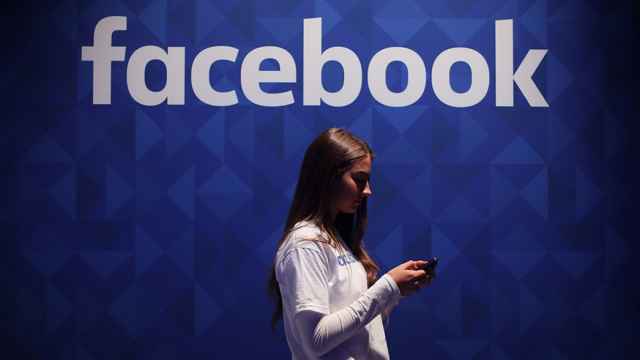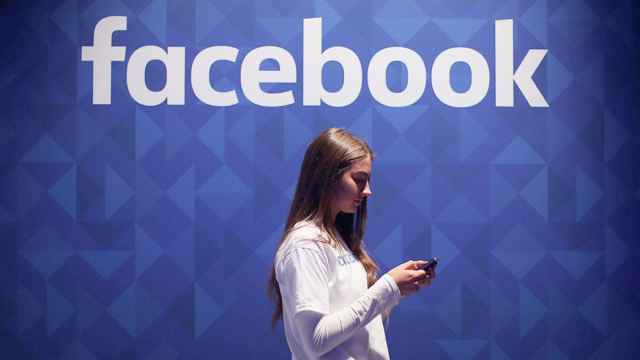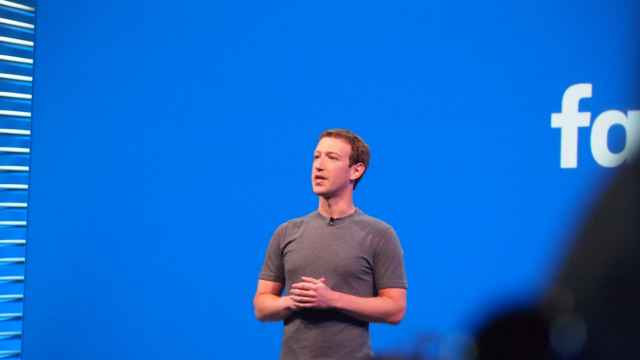Facebook Inc. knew that Russian-linked entities were using a feature on the social network that let advertisers harvest large amounts of data as early as October 2014, according to an internal email a U.K. lawmaker said he had reviewed.
Previously, Facebook has said it was unaware of this sort of Russian activity on the social network until after the 2016 election.
Damian Collins, head of a committee of British lawmakers investigating the impact of fake news, said he had reviewed an email from a Facebook engineer highlighting suspicious Russian-linked data harvesting on Facebook two years before that.
Collins’ committee obtained the email after it compelled the founder of a U.S. software company, Six4Three, to hand over a large cache of documents during a business trip to London. The Six4Three founder had obtained the documents as part of a legal discovery process in a lawsuit against Facebook that his company has brought against the social network in California.
Facebook said that the document cited by Collins was taken out of context. "The engineers who had flagged these initial concerns subsequently looked into this further and found no evidence of specific Russian activity," the company said in an email to Bloomberg Tuesday.
Richard Allan, vice president of policy solutions at Facebook, said in testimony before Collins’ committee Tuesday that he would not discuss the documents, which have been sealed by the California court. Collins said his committee would not release the full cache of documents "at this time."
Lawmakers from the U.K. and other nations lambasted Facebook during the hearing for abusing public trust and failing to provide honest answers to questions about the misuse of user data.
The lawmakers had wanted Mark Zuckerberg, the company’s founder and chief executive officer, to appear as well, and they repeatedly hammered Allan over the company’s decision not to send the CEO to testify.
The committee laid out a place card marked “Mark Zuckerberg,” which remained unoccupied during the hearing.
"I have a role supporting my company as it tries to grapple with the issues we are discussing today and when we are trying to decide where senior officers of the company should be, we need to balance that out," Allan said in response to repeated questions about why he was appearing instead of Zuckerberg.
Canadian lawmaker Charlie Angus asked Allan whether Facebook had lost public trust and should now be regulated by governments.
"I am not going to disagree with you that we have damaged public trust in some of the actions that we’ve taken," Allan said.
Allan said that Facebook would welcome clear laws globally around political communication and was willing to accept some further regulation. "To the extent this is all clarified and we have a clear playbook to work from, that would be very helpful," he said.
But Allan said the company had not violated existing laws or a consent decree the company had signed with the U.S. Federal Trade Commission concerning users’ privacy.
Nathaniel Erskine-Smith, a member of the Canadian Parliament, pressed Allan over whether a user signing up for Facebook could reasonably be seen as "meaningful consent" -- the standard under Canadian privacy law -- for the company allowing others to access that data.
"Our view is when you signed up for Facebook it was sufficiently clear that as part of the social experience that when you shared information with friends that they might share it on," Allan said.
Erskine-Smith also asked Allan about whether the company ever sought to tie the purchases of mobile advertising to further access to user data. Allan said he was unaware of any such discussions and would have to get back to the committee with an answer.
Six4Three allowed users to find photos posted of friends in bikinis. Facebook effectively shut down the app -- which was deemed creepy by the Silicon Valley trade press -- when it cut off third-party developers from the data users share about their friends in 2015. That was about a year after the same back-door channel allowed a Soviet-born American researcher, linked to Cambridge Analytica, to gather basic profile information on millions of Facebook users.
Since the revelations in mid-March that Cambridge Analytica, the now-defunct political ad consulting firm, governments in the U.S., the U.K. and Europe have been grilling executives, industry insiders and whistle-blowers to understand exactly how much information the company collects on people and what they do with it.
Cambridge Analytica and Nix have repeatedly denied any wrongdoing.
Facebook CEO Mark Zuckerberg answered questions during U.S. congressional hearings in April, but has repeatedly refused to appear before U.K. lawmakers. The social network’s chief technology officer, Mike Schroepfer, was sent to answer questions in April.
Allan’s hearing comes about a month after Facebook announced it had hired Nick Clegg, Britain’s former deputy prime minister, to run its lobbying efforts
A Message from The Moscow Times:
Dear readers,
We are facing unprecedented challenges. Russia's Prosecutor General's Office has designated The Moscow Times as an "undesirable" organization, criminalizing our work and putting our staff at risk of prosecution. This follows our earlier unjust labeling as a "foreign agent."
These actions are direct attempts to silence independent journalism in Russia. The authorities claim our work "discredits the decisions of the Russian leadership." We see things differently: we strive to provide accurate, unbiased reporting on Russia.
We, the journalists of The Moscow Times, refuse to be silenced. But to continue our work, we need your help.
Your support, no matter how small, makes a world of difference. If you can, please support us monthly starting from just $2. It's quick to set up, and every contribution makes a significant impact.
By supporting The Moscow Times, you're defending open, independent journalism in the face of repression. Thank you for standing with us.
Remind me later.






